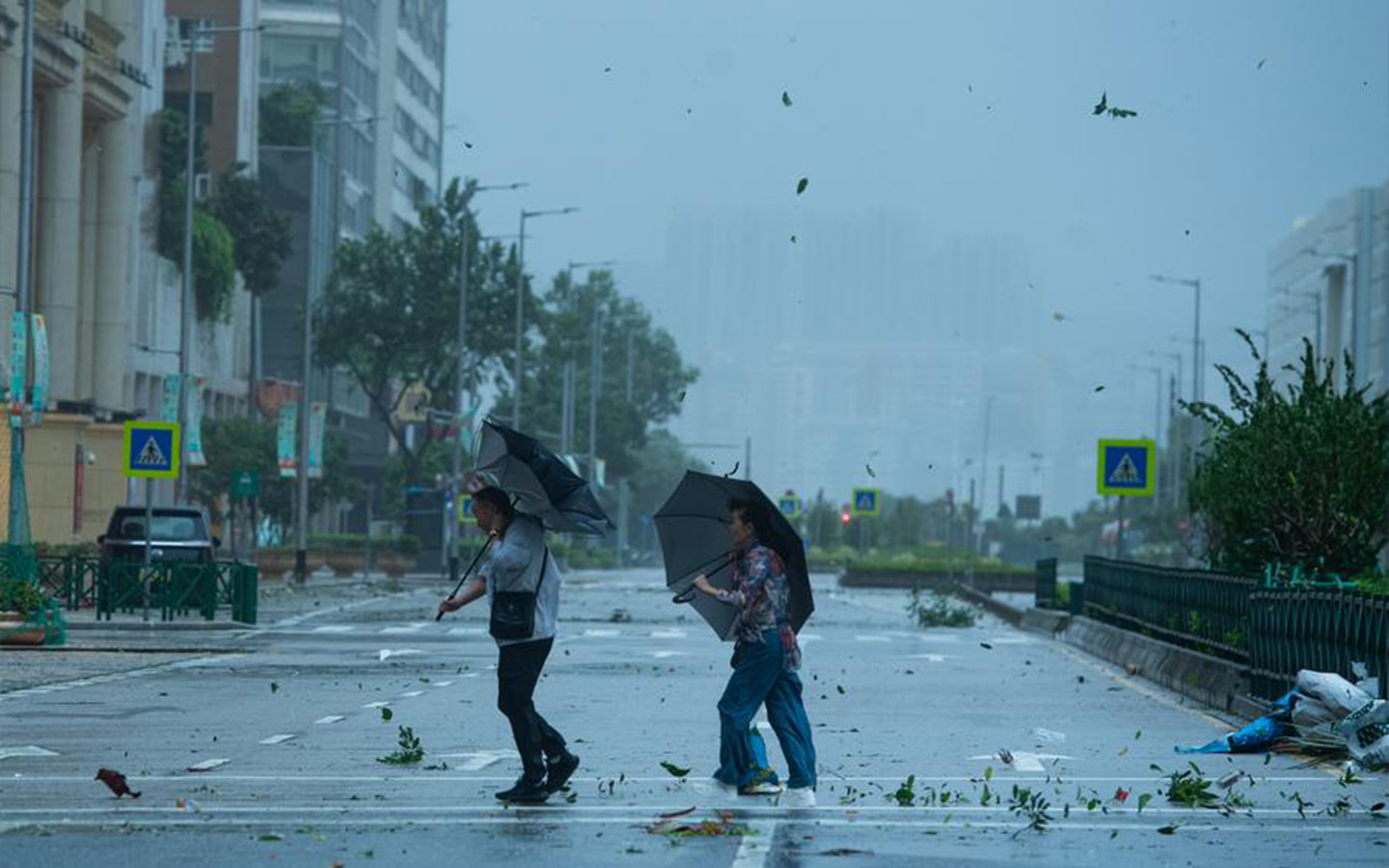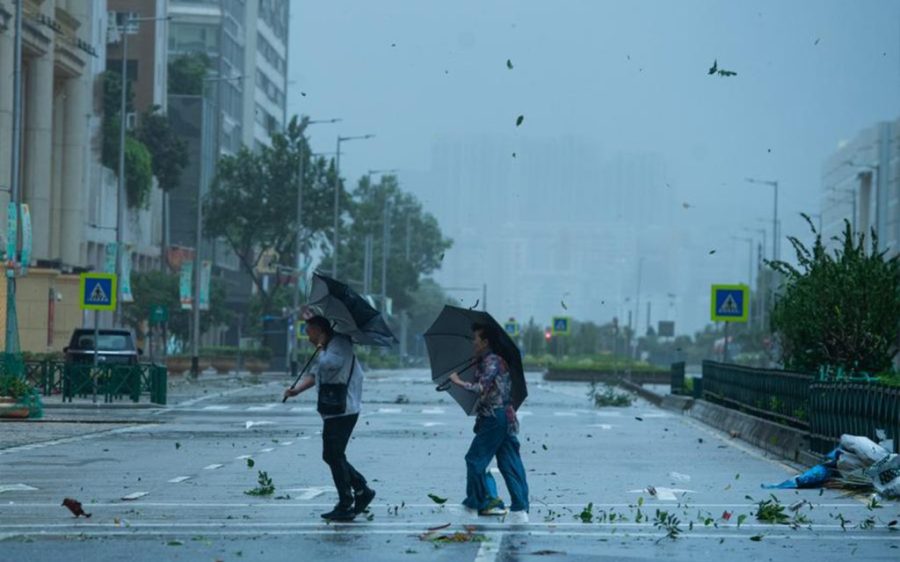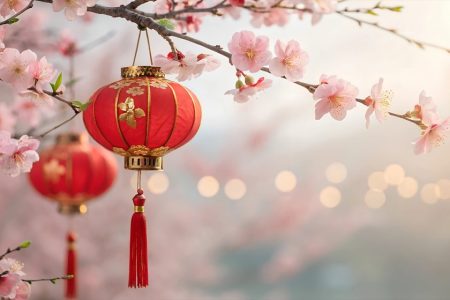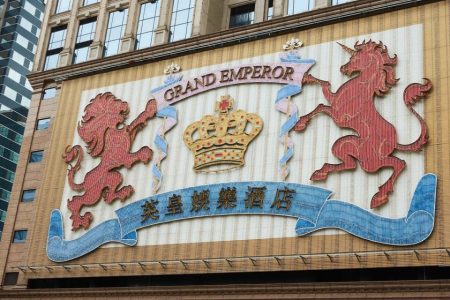Every year, as summer approaches, Macao braces itself for typhoon season. These powerful tropical cyclones bring with them torrential rain, fierce winds, and the potential for widespread disruption. For residents and visitors alike, understanding how to prepare and react when a typhoon strikes is not just useful – it’s essential for safety and peace of mind.
This guide aims to be your comprehensive resource for navigating typhoon season in Macao. We’ll cover everything from the basic meteorology of these storms and the meaning of the various typhoon signals, to practical advice on transport, what to do if you’re caught in a storm, and how to keep yourself and your property safe. With climate change contributing to more extreme weather events, being well-informed is more crucial than ever.
[See more: Extreme weather events in Macao are on the rise, says top weather official]
By bookmarking this guide, you’ll have instant access to vital information that can help you plan, prepare, and respond effectively when the next typhoon inevitably approaches Macao.
And when a typhoon hits, don’t forget to visit the Macao News homepage for all the latest news on the storm. Stay safe out there.
The meteorology of Macao’s typhoons
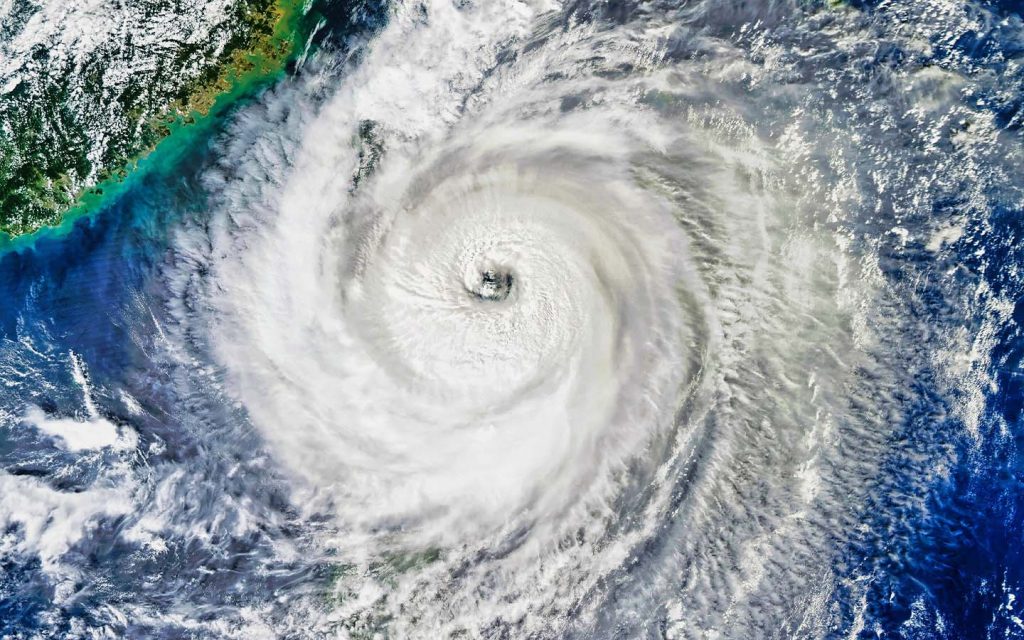
When exactly is typhoon season?
The peak period is July to September, but typhoons can happen as early as May (like tropical storm Maliksi in 2024) and as late as November. In fact, November 2024 saw four typhoons during a single month – a meteorological first.
We seem to be getting more typhoons these days. Why is that?
The short answer: warm oceans. Typhoons form when the sea surface temperature is warm, because heat and moisture fuel unstable weather conditions. And the reason the seas are warmer? Climate change.
Where can I find out what all the different typhoon signals mean?
Macao’s Meteorological and Geophysical Bureau (known as the SMG, after its Portuguese initials) publishes a detailed explanation here.
Do I need to worry if it’s just a signal no. 1?
The SMG calls signal no. 1 a “precaution signal.” It simply means that a tropical cyclone is centred within 800 kilometres of Macao and may affect Macao – or it may not. But you need to have it in the back of your mind, especially if you’re planning outdoor activities or any travel in the following few days.
[See more: Soaring temperatures drove extreme weather events in 2024, report finds]
Start checking weather updates regularly and be prepared to adjust your plans accordingly. The SMG publishes its bulletins here.
Why does it go from signal no. 3 straight to no. 8? What happened to all the numbers in between?
The early storm warning systems used in Macao and neighbouring Hong Kong did indeed have consecutive numbering, but were considered confusing, since signals 5, 6, 7 and 8 all referred to winds of the same intensity – with differences only in wind direction.
[See more: Four typhoons in November: a meteorological first]
For reasons of clarity, a decision was made to simplify the system, with no. 1 as an alert signal, no. 3 indicating strong winds, and no. 8 representing storm-force winds. The no. 8 signal is also the cue for major civil protection actions, such as the shutting down of transport and the closure of offices and schools.
There is a signal no. 9, meaning that a no. 8 storm is expected to intensify even further, and signal no. 10, which indicates that the typhoon is making a direct hit.
Do the Macao typhoon signals mean the same as the Hong Kong typhoon signals?
Yes, they do. For reference, the Macao signal explanations are here and the Hong Kong ones are here.
You ought to be aware, however, that the SMG and the Hong Kong Observatory don’t always hoist the same signals at the same time – and that can have implications for transport between the two cities, be that bus services across the Hong Kong-Zhuhai-Macao Bridge or ferry sailings.
Why are typhoon signals “raised” or “hoisted”?
It’s a charming anachronism. In the 19th and 20th centuries, the signals took the form of flags and were literally hoisted on a flag staff so that the public – and especially sailors – could be aware of them. Somehow the language has stuck.
Are cyclones, hurricanes, tropical storms and typhoons all basically the same thing?
Pretty much. It’s mostly a difference of intensity and location.
“Tropical cyclone” is the generic term for this kind of severe weather. If the wind speeds reach 63 kph, it’s a “tropical storm.” If they exceed 119 kph, it officially becomes a “typhoon.”
[See more: 2024 was officially hot, wet and stormy, the weather bureau says]
When the weather system occurs in the North Atlantic or the Northeast and Central Pacific, it’s known as a “hurricane.” In the South Pacific and Indian Ocean, it’s simply termed a cyclone. But typhoon is the term used in East Asia and Northwest Pacific.
What to know when a typhoon is approaching Macao
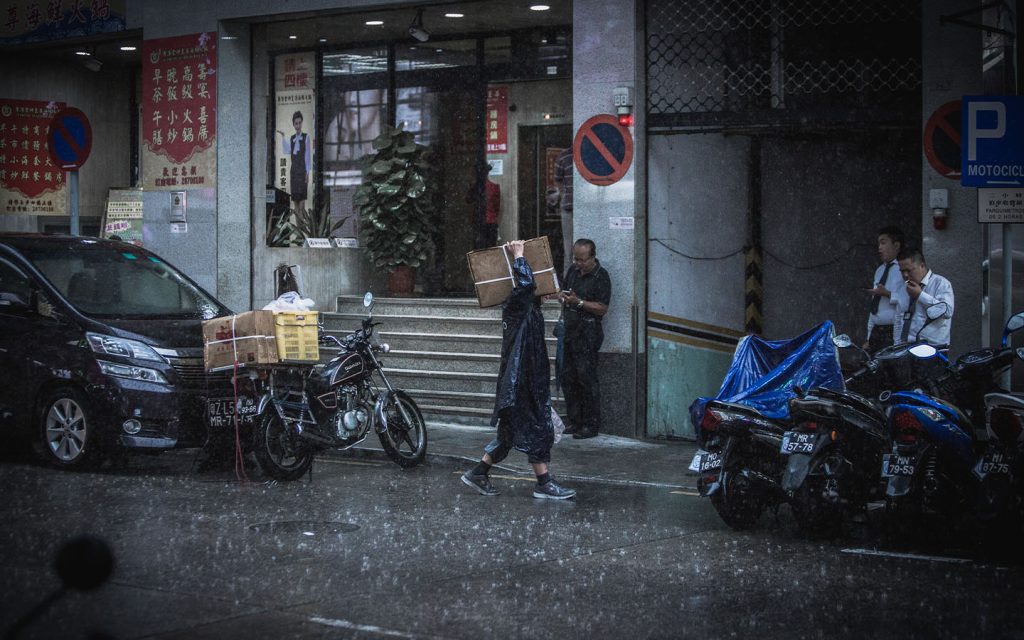
What are the websites I need to bookmark?
The SMG will post regular updates throughout the approach, passage and departure of a typhoon. The Hong Kong Observatory will do the same.
During a typhoon, the Macao government will post civil protection bulletins here, including details of bridge closures, school closures, transport suspensions, damage to structures, locations of emergency shelters, and so on.
[See more: ‘Climate whiplash’ is affecting scores of cities around the world]
If you need to find out about your flights, check the websites of the airports in Macao and Hong Kong. News about ferry services in a typhoon can be found at the websites of the operators TurboJet and Cotai Water Jet. Information about buses to Hong Kong is found here.
The Macao Government Tourism Office publishes this handy summary of typhoon information.
Don’t forget to bookmark this article and the Macao News homepage, as we will cover all the relevant developments when a typhoon approaches or hits Macao.
What are the emergency phone numbers I need to know about?
Dialling 999, 110 or 112 will connect you to the emergency services.
A comprehensive list of other numbers – from emergency shelters and the Civil Protection Operational Centre to a tourist helpline and the electricity company – can be found here.
What are the basic measures I need to take if a typhoon is on its way?
That depends on the typhoon signal. If it’s only a no. 1 signal, you can probably get away with monitoring the weather and the typhoon’s likely path.
In a no. 3 signal, you need to start your preparations:
- Tie down or take in your outdoor items, like plant pots, parasols and balcony furniture
- Check other external fixtures, like antennae, awnings or fences, for stability – make sure anything that could be blown away is secure
- Clear gutters and drains
- Make sure doors and windows are secure and safe
- Take extra care when driving, especially on bridges
- Owners of recreational vessels and other craft should make sure their boats are safely berthed
These preparations must be completed before a higher signal is raised.
Should I be taping my windows or is that a myth?
Many people like to do this because it makes them feel better, but tape does not stop a window from shattering in high wind. In fact, it can make the situation more dangerous because the tape could cause the glass to stay together in larger shards if the window does implode.
[See more: University of Macau aims to improve predictions of severe weather]
If you’re worried about your windows, the best advice is to keep away from them. In very severe typhoons, hunker down in a windowless part of your home, such as a hallway.
Transport in Macao during a typhoon
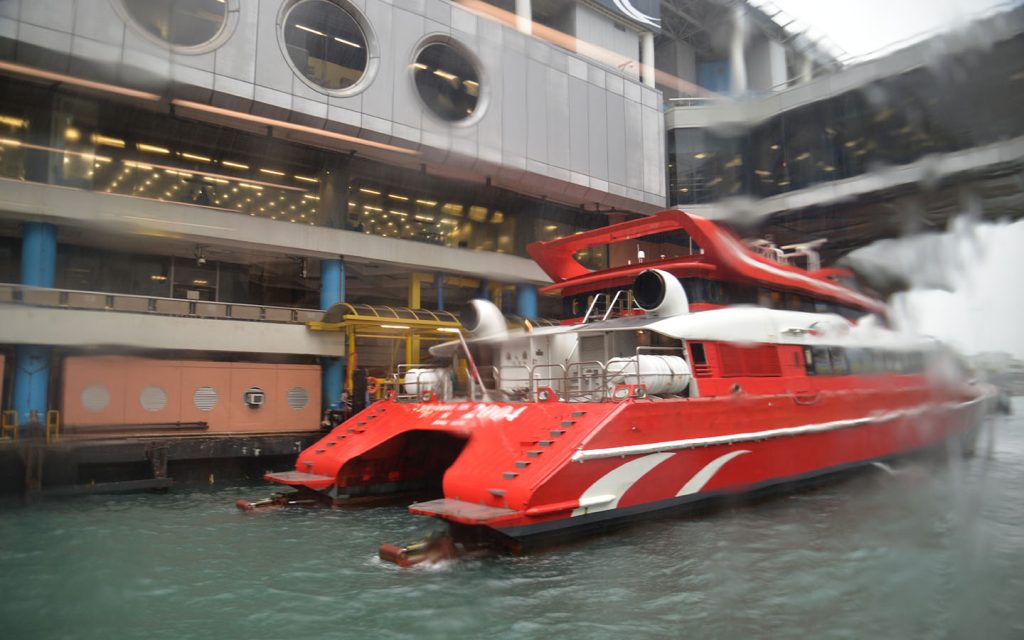
It’s only signal no. 3. Do I need to worry about transport shutting down yet?
No. Macao’s public transport system will continue operating as normal during signal no. 3.
Once a signal no. 8 or higher alert is hoisted, however you can expect all major public transport, including public buses, trains and planes, to grind to a halt, with the exception of some regular taxis.
Is there really no way of getting from the peninsula to Taipa when they close the bridges?
Under current regulations, all four of the cross-sea bridges that link the peninsula with Taipa are closed when a signal no. 8 or higher typhoon is issued.
[See more: How much do you know about the six bridges of Macao?]
The exception is the enclosed bottom deck of the Sai Van Bridge, which is open during a signal no. 8 to allow travel between the peninsula and the outer districts. However, in the event of a signal 9 or 10 typhoon, the bottom deck is closed as well. Be warned: this will cut off the peninsula from Taipa and Coloane, as was the case during the recent Typhoon Wipha.
I’m in Macao but live in Hong Kong, and there’s a typhoon approaching. How late can I push my departure?
To avoid being stranded, you must make your way towards the ferry terminal, or the HZMB bus terminal, before a no. 8 typhoon is raised. Any later and you risk finding yourself stuck in Macao due to the suspension of practically all transport services.
The operators of the HZMB shuttle bus and ferries (Turbojet and Cotai) make announcements on their final departures and arrangements during a typhoon no. 8, so keep an eye out on their webpages. The latter aren’t updated frequently, so you should also try their social media profiles, where information is likely to be more timely.
I’m a Macao resident but currently in Hong Kong. When are they going to stop the ferries? What about the buses?
When a no. 8 or higher typhoon signal is issued, the HZMB’s Golden shuttle bus service and the ferry services that run between Hong Kong and Macao will suspend operations. They have also been known to stop services 1 to 2 hours before a signal no. 8 is hoisted, so if you’re anxious to get over to the other side of the estuary, you need to start paying attention as soon as a signal no, 3 is raised. If meteorologists warn that a higher signal is likely, get moving.
Does the bridge to Hong Kong and Zhuhai stay open in a typhoon?
During a signal no. 1 or 3 signal, the HZMB will remain open as usual. However, during a signal no. 8 or higher typhoon, the HZMB checkpoints are closed, so as to protect the safety of travellers.
Do Macao’s taxis keep working in a typhoon? Are they allowed to charge me extra?
They’re under no obligation to keep operating. According to a statement issued in July by the Transport Bureau, drivers of regular “black” taxis can offer limited service, but at their own discretion, after the hoisting of a no. 8 typhoon signal.
Jornal do Cidadão reports that there were black taxis operating under a limited capacity when Typhoon Wipha was raised to level 10 recently. The paper cited the vice president of the Commercial Vehicles Owners’ Association of Macau, Leng Sai Vai, as saying that there were no rules mandating the suspension or operation of service during such extreme weather events. Instead the responsibility on whether or not to offer limited services falls with the operator. Leng mentioned that the government does not advise taxi drivers to take the risk of working in extreme weather.
[See more: Opinion: Macao can forget about being an international destination until it fixes its taxi problem]
As for special “blue” and “red” taxis, which can be booked via a hotline (+853 288 12345) or mobile app, they offer limited service for a one hour period before a no. 8 typhoon signal comes into force. Once the signal has been raised, the special taxis will temporarily suspend operations.
Taxis should not be charging you extra during adverse weather, although there have been cases in the past of drivers illegally charging as high as 1,000 patacas during typhoons. To file a complaint about taxis in Macao, call the Public Security Police (PSP) Traffic Department at +853 2837 4214 for issues like overcharging, refusal of carriage, or other violations. For complaints about taxi drivers’ service attitude, you can contact the Transport Bureau (DSAT) at +853 8866 6363.
Is it safe for me to drive in a typhoon?
That depends on the typhoon signal that has been hoisted. For signal no. 1 and no. 3 tropical cyclones, you may continue driving as normal, although you should be mindful of strong winds and showers.
Motorcyclists are advised to avoid the Amizade Bridge during these two typhoon signals and instead cross between the peninsula and Taipa via the dedicated motorcycle lanes on the Sai Van Bridge and Macao Bridge.
[See more: The Macau Bridge could stay open during typhoons]
When a no. 8 or higher typhoon signal is raised, you are advised to avoid driving and find shelter due to the extremely strong winds, storm surges, the risk of flying debris and other hazards.
I’m supposed to be getting a flight. Should I still go to the airport?
By all means head to the airport if the typhoon signal is still at no. 1 or 3. However, for your own safety, it is best to stay indoors or in an emergency shelter once a no. 8 or higher typhoon alert has been raised.
[See more: Here’s what to do if you lose your Macao passport while travelling]
During a level 8, 9 or 10 tropical cyclone, your flight will most likely be delayed or cancelled anyway. Contact your airline or check the Macao International Airport’s real-time departure timetable for the latest updates.
Safety in the home during a typhoon
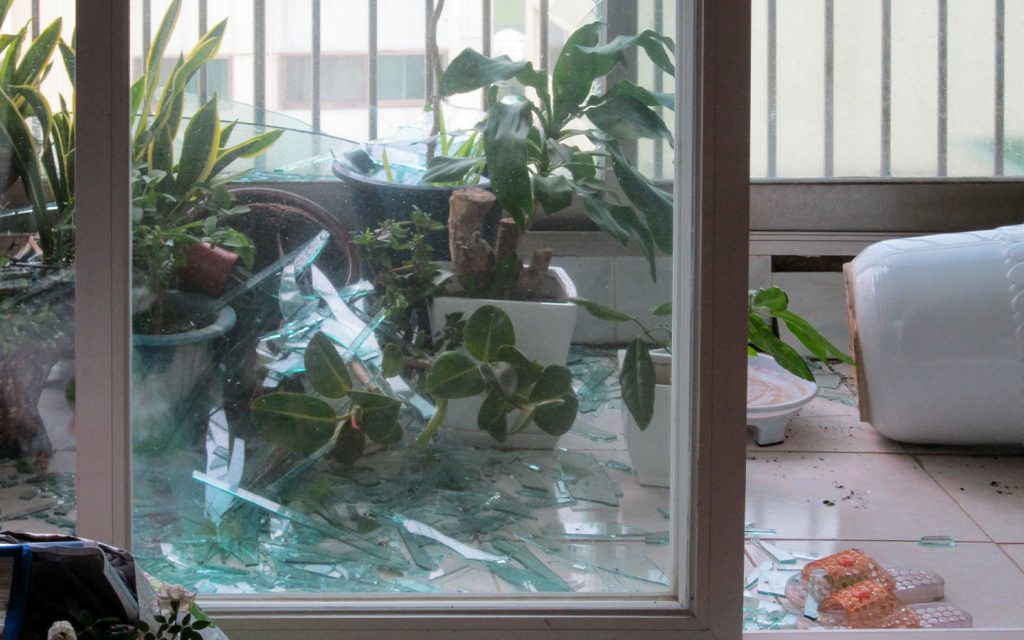
My window just shattered and the storm is raging. Is it safe to stay in my apartment and if not where should I go?
A home with a shattered window is unsafe to stay in. According to McGill University, an exposed window leaves inhabitants vulnerable to wind-borne debris, “one of the most significant causes of damage to both property and persons during storms.” Signal 8 typhoons in Macao have minimum wind speeds of 63 kmh, turning stray branches and home decor into dangerous projectiles.
[See more: These are the names suggested by Macao for incoming typhoons]
If you no longer have intact windows and doors, you can go to one of the government’s four typhoon shelters. If you can’t make it to one of them safely, find a windowless space in your home or building, such as a corridor, lift lobby or bathroom, to wait out the storm.
If you need emergency rescue, dial 999, 110 or 112.
Can I get my window replaced during a typhoon?
Probably not. Macao News called most of the window installation businesses in town, but none could guarantee that they would provide services during typhoon signal 8.
Is it safe to walk my dog in a typhoon?
No, do not walk your dog in a typhoon. Pets should be kept indoors during a storm, owing to high winds and debris. Keep toys on hand to amuse your pets during the long hours of a typhoon – and don’t forget to stock up on “potty pads” in case your dog needs to answer the call of nature.
I read that I need to keep all internal doors closed during a typhoon. Is that true?
Yes, you should keep internal doors locked to disperse the pressure in your home – this decreases the upward pressure on your ceiling and windows, preventing structural collapse.
[See more: Macao could be hit by up to 8 typhoons this year, says local forecaster]
According to James Cook University’s cyclone testing station director David Henderson, closing internal doors helps “limit the spread of pressure, as well as some of the wind-driven rain getting into other places.”
Do I have the right to insist that my landlord gets my apartment windows checked regularly?
You can request that your landlord get your apartment windows inspected, but they are under no obligation to comply. According to Macao’s “Legal Regulations on Urban Buildings” (都市建築法律制度), owners of residential buildings should carry out maintenance every five years. However, the law is unenforced, and there are no penalties for infraction.
Window inspections are also not included in the Macao government’s Building Maintenance Fund, so local authorities will not provide reimbursements for them.
Banks, offices and schools during a typhoon in Macao
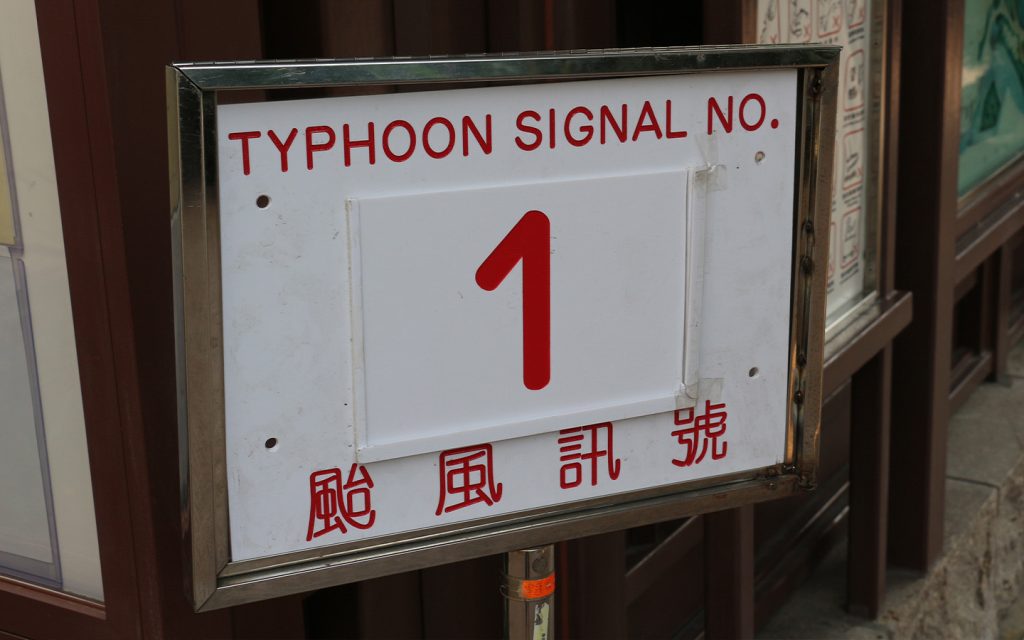
What’s the policy regarding schools and typhoons?
The education bureau’s full adverse weather conditions guidelines are here. Generally, if it is a no. 3 signal, classes for infants, primary and special education will be suspended. If the signal is issued from 6:30 am to 9 am, classes are suspended all day, but if it is issued from 11:30 am to 2 pm, then they will only be suspended in the afternoon. Classes continue as usual for secondary schools during a no. 3 signal.
If a no. 8 signal is issued at or after 6:30 am, all classes including secondary schools, will be suspended all day.
[See more: Brace yourself for more typhoons than usual this year]
If there is a no. 8 signal between midnight and 6:30 am, but is lowered to a no. 3 signal at 6:30 am, all classes will also be suspended all day.
The public can get up-to-date info on class suspensions through the SMG website, the education bureau website, app and official account on WeChat (id: dsedjmacau), as well as the TV and radio.
Can my employer force me to come to work in a signal no. 8 typhoon or higher?
No, your employer cannot force you to come to work – unless there is a prior written agreement that specifically outlines such an arrangement.
According to the Labour Affairs Bureau’s official guidelines, employers and employees should agree in advance on what to do in severe weather conditions, including whether work is required, how transport will be arranged, and what compensation will be offered. In the absence of such an agreement, you are not obligated to report to work once signal No. 8 is in force.
Employers are also encouraged to prioritise employee safety and cannot arbitrarily deduct wages, attendance bonuses, or other allowances if employees cannot reasonably report to work during a storm.
[See more: Local typhoon drill ‘Crystal Fish’ declared a success]
If work is required under a prior agreement, employers must provide safe transport or appropriate travel allowances and ensure rest periods and proper protective equipment if the job involves hazardous conditions. While these arrangements aren’t codified in law, they are widely adopted in Macao.
At what point do banks and offices close?
In Macao, banks and most offices follow a clear protocol when a typhoon approaches. According to the Macau Association of Banks, all banking operations are suspended one hour before signal no. 8 is officially hoisted. If authorities announce that the signal will be raised within the next hour, banks will close immediately to ensure the safety of staff and customers. This allows time for employees to return home safely before weather conditions worsen.
Government offices, universities, and many private businesses also close as soon as signal no. 8 is officially in effect. Depending on the organisation, work may only resume after the typhoon signal is lowered and a recovery period has passed. These closures are part of standard safety measures in Macao and are communicated through official channels as soon as signals are updated.
I have a really important business meeting. Is the etiquette to call it off when it gets to signal no. 3 or do I wait until it hits no. 8?
If signal no. 3 is in effect, it’s generally still acceptable to go ahead with scheduled business meetings. This signal means that strong winds are expected, but it does not trigger closures of offices, transport, or public services. Most businesses continue as usual, though it’s wise to stay alert to weather updates and have contingency plans in place.
[See more: Paying more for your coffee? Blame climate change for that]
However, once signal No. 8 is officially hoisted, the situation changes. This warning signals gale-force winds and leads to the suspension of public transport, the closure of banks and government offices, and the cancellation of most business activities. At that point, meetings are typically postponed or shifted online if necessary. In short, unless otherwise arranged, the common practice is to continue as planned under signal No. 3 – but to call off or reschedule once signal No. 8 is raised.
What stays open during a Macao typhoon?
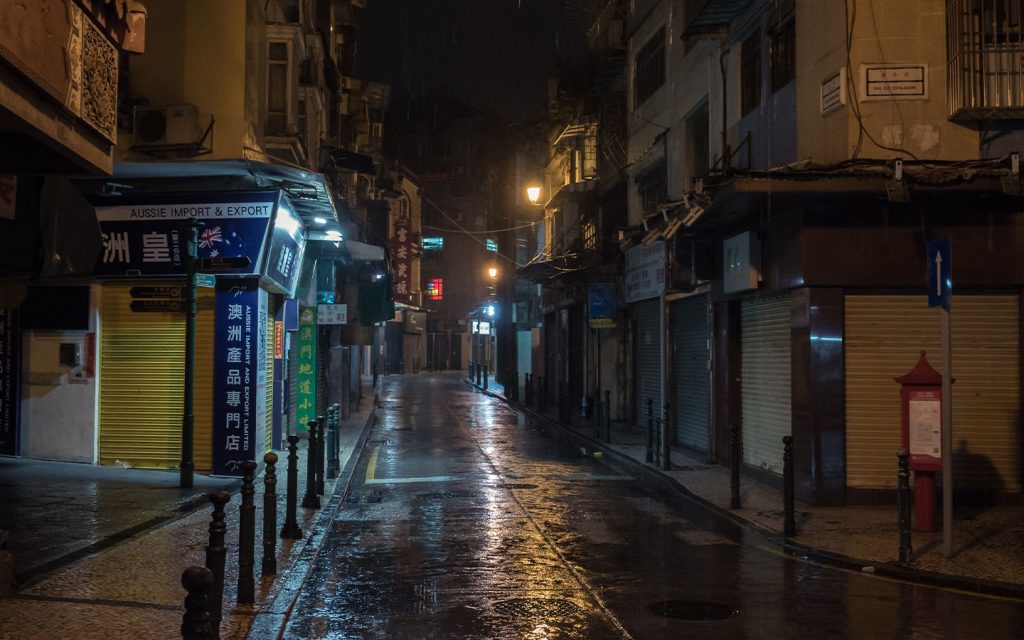
Does food delivery still work in a typhoon?
Generally, food delivery is available up to a no. 3 signal. Once it reaches a no. 8 signal, however, most restaurants and food delivery drivers will stop working.
Do shops and restaurants stay open? What about cinemas?
The general rule of thumb is that shops, restaurants and cinemas will stay open in a no. 3 typhoon signal, but most will close if it is a no. 8 signal or above. However, some branches of fast food chains like McDonald’s tend to stay open even up until a no. 8 signal (but will close if the signal is any higher).
[See more: Better work conditions for food delivery riders could reduce accidents, survey implies]
Keep an eye out for announcements on social media, as some shops, restaurants and cinemas will reopen if the signal drops later on in the day.
Help. I literally have no food in the house
The trick is to not let yourself get into this situation. If the SMG advises that a no. 8 signal typhoon (or higher) is approaching, head to the shops and stock up without delay. Even better: keep a few “typhoon groceries” (pasta, noodles, ready meals, cereal, and the like) in the cupboard or freezer for just this eventuality.
[See more: Unsung heroes: Meet the ‘riders’ who supported Macao during the pandemic]
If you’re desperate, some supermarkets like Sanmiu remain open even if there is a no. 8 signal, but will close if the typhoon becomes more severe.
Are all events cancelled in a signal 8 typhoon or higher, even if they’re indoors?
If there is a no. 8 signal, events are almost certainly cancelled, but make sure to check directly with the event organisers. If it is above a no. 8 signal, all events will definitely be cancelled.
Do casinos stay open in typhoons?
There’s no hard and fast rule. During Typhoon Saola in 2023, all casinos were ordered to close. But during Typhoon Wipha, in July 2025, the Gaming Inspection and Inspection Bureau (DICJ) actually ordered the city’s casinos to remain open to protect tourists that would be otherwise forced into unsafe outdoor conditions. The casinos were asked to provide food, shelter and care to guests and staff during that time.
Flooding and emergency shelters during typhoons in Macao
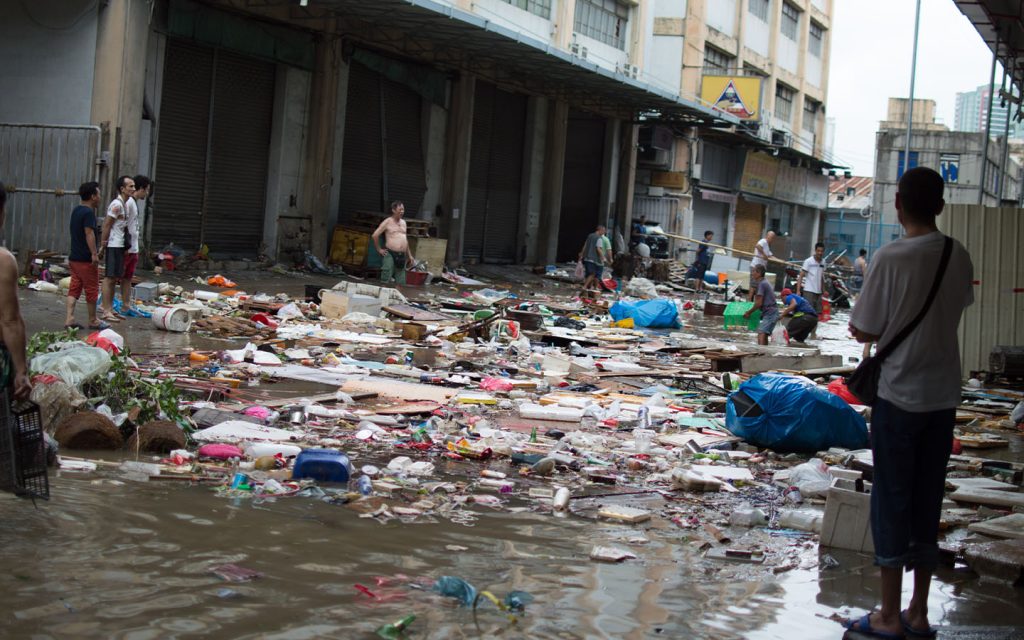
Which are the areas of Macao most liable to flooding?
The area most prone to flooding in Macao is the western part of the Macao Peninsula, especially around the Inner Harbour, due to its low elevation and exposure to storm surges.
Reclaimed zones like Cotai, parts of Taipa, and Seac Pai Van are also vulnerable.
Where do I go to find out information about storm surge warnings?
The best place to go is the website of the SMG. A dedicated storm surge page explains the city’s five-tier warning system – from blue (the lowest) to black (the most severe) – and outlines what each level means in terms of expected flooding and safety precautions.
My car is in a basement car park in a flood-prone area. Should I be worried during a typhoon? Where can I move it to?
Yes, you should be worried. The Macao Government advises moving vehicles to higher ground or above-ground car parks before a typhoon or storm surge warning is issued. Basement and low-lying areas can flood quickly, putting your car – and your safety – at serious risk.
[See more: Climate change: Cities are trying innovative techniques to beat the heat]
During a serious typhoon, the West Car Park of the Macao frontier post at the Hong Kong-Zhuhai-Macao Bridge is usually open to the public free of charge until all typhoon signals are cleared.
I live in a flood-prone area. Who do I call if my house is flooded?
The Municipal Affairs Bureau (known as the IAM after its Portuguese initials) plays a key role in flood prevention and response in Macao, especially during typhoon season. While the IAM doesn’t handle emergency rescues, it is responsible for maintaining the city’s drainage systems, clearing blocked sewers, and setting up flood barriers in low-lying areas.
[See more: It is ‘virtually certain’ that Earth has breached the 1.5°C climate change threshold]
If your home is in a flood-prone zone, IAM’s alerts and updates – available through the government website and news channels – can help you prepare in advance. For on-the-ground assistance like water drainage or cleanup, the IAM can also be contacted through its hotline: 2833 7676.
If you need emergency rescue, dial 999, 110 or 112.
Are there professional cleaning companies that specialise in clearing up flood damage?
Yes, there are professional cleaning companies in Macao that can help with flood damage cleanup. While they may not all specialise exclusively in water damage restoration, many offer services like water removal, drying, disinfection, and basic repair work after flooding.
Companies such as Pro Cleaning Service, Easy Clean Cleaning Services, and others listed in local directories say they are equipped to handle residential and commercial post-flood cleaning.
I heard the government runs emergency shelters. Where are they?
The Macao government runs four emergency shelters during typhoons. If you’re on the Macao peninsula, you can go to the Ilha Verde Refuge Centre or the Macao Federation of Trade Unions Workers Stadium (by the Praça das Portas do Cerco).
People in Taipa can go to the Taipa branch of the Taipa and Coloane Social Service Centre, while those in Coloane can visit the Academy of Public Security Forces.
[See more: Climate change could push Macao’s sea levels 64 centimetres higher than they are now]
According to the Social Welfare Bureau, there’s no need to apply or call in advance – you can just show up.
If conditions warrant, 13 additional emergency shelters will open: nine in the Peninsula, one in Taipa and three in Coloane.
